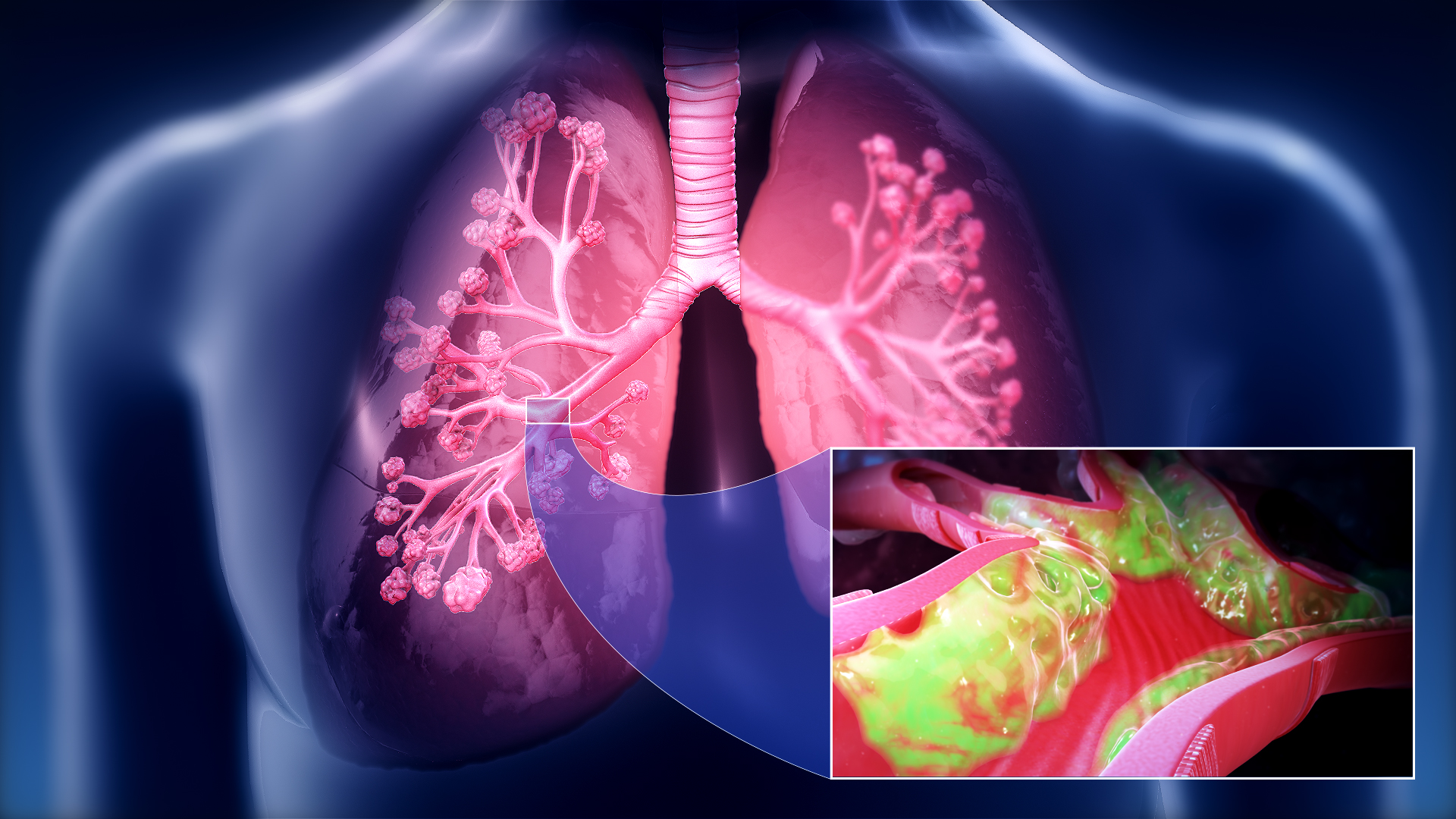Chronic obstructive pulmonary disease also known as COPD. COPD is a term that is used to describe a group of progressive lung diseases. COPD includes diseases such as emphysema, chronic bronchitis, and refractory asthma. Shortness of breath is the main characteristic of chronic obstructive pulmonary disease.
Emphysema: In emphysema, the air sacs termed as alveoli get damaged. The walls inside the alveoli get destroyed and merge into larger air sacs. These larger air sacs do not absorb oxygen as well as the smaller air sacs. As a result, less oxygen is absorbed into the blood. The alveoli when damaged also make the lungs stretched out and the air gets trapped in them and causes shortness of breath.
Chronic bronchitis: Chronic bronchitis is caused when there is damage to the bronchial tubes. The bronchial tubes get swollen and irritated. Cilia, which are hair-like fibers that line the bronchial tubes get destroyed and it gets hard to get the mucus out. Coughing, shortness of breath and mucus are all signs of chronic bronchitis.
Refractory asthma: This type of asthma does not get treated by normal asthma medications. In asthma attacks, the airways get swollen and tighten up and with the medication, they can be opened up. But in refractory asthma, the medicine is not able to reverse the swelling or the tightening of the airways.
Symptoms
The most common signs and symptoms of COPD are :
- Shortness of breath
- Tightening of the chest
- Mucus production
- Coughing
- Breathlessness
- Wheezing
- Low energy
- Swelling in ankles, legs or feet
- Unintended weight loss
Causes
One of the biggest cause of COPD is cigarette smoking. Another huge cause is inhaling pollutants, including second-hand smoke, dust, chemicals, and fumes. Another factor that contributes to the development of COPD is genetics.
Treatment
The first and foremost step in treating COPD is to stop smoking immediately. There are various medications and therapies that can be usually prescribed. Some of these include bronchodilators, corticosteroids, combination inhalers, antibiotics, flu vaccines, pulmonary rehabilitation, and oxygen therapy.
In some cases of severe COPD, surgery may be prescribed which could include bullectomy, lung volume reduction surgery and lung transplant.
COPD can often cause other health complications such as respiratory infections, heart problems, lung cancer, high blood pressure in the arteries of the lungs, and depression. Unfortunately, COPD is a disease that is progressive as well as fully incurable. However, with the help of correct and early diagnosis and treatment, one can manage this condition well and live for many years with an improved quality of life.
Disclaimer: The information in no way constitutes, or should be construed as medical advice. Nor is the above article an endorsement of any research findings discussed in the article an endorsement for any of the source publications.









